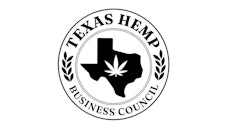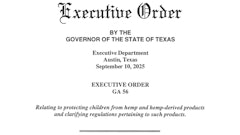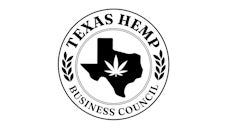Caliper, a cannabidiol (CBD) product manufacturing company, rebuked a June 17 letter from consumer interest and public health groups that called for Congress to proceed with caution as it looks to mandate the Food and Drug Administration (FDA) to regulate CBD in supplements and food.
In the June 23 response, Caliper co-founder and CEO Justin Singer called out several allegedly misleading claims in the letter penned by the Center for Science in the Public Interest (CSPI), Consumer Reports, the Public Health Institute and the Consumer Federation of America.
For example, the CSPI letter advised Congress against “Forcing the FDA into rushed decisions and to prematurely implement major regulatory changes would result in an unsafe CBD market and distract the FDA from its current pandemic response and recovery efforts.” Singer, however, noted in his response that “This comment assumes that the CBD market today either (1) does not exist or (2) exists and is safe. Neither, of course, is true.
“The consumer CBD market exists because Congress legalized the production of CBD with the 2014 and 2018 Farm Bills. The consumer CBD market is generally unsafe because the FDA refuses to regulate it,” he wrote. He also noted that the United Kingdom’s Food Standards Agency (FSA) “imposed reasonable regulatory guidance for permissible CBD products within [six] months of being asked to do so while relying on FDA’s own data.”
Singer also noted that several of the negative outcomes highlighted in the CSPI letter have already come to pass. Notably, the CSPI letter warned that a rapid response to regulating CBD would lead to consumers wrongly believing that CBD products have been vetted by the FDA. According to the Consumer Brands Association, the nation’s largest food industry trade association, 51% of Americans already assume that CBD is regulated by the FDA.
While Singer disagreed with the ultimate conclusion that the CSPI letter made, namely that Congress should not “place undue political pressure” on the FDA’s process in regulating CBD, he supported certain proposed rule changes, including the creation of “a post-market testing program to monitor the quality of ‘high-risk’ categories of supplements known to be commonly adulterated, including CBD.” That said, he noted the FDA is not currently prevented from doing so today, but has chosen not to, nor is it prevented from building a public database of all products sold with FDA oversight, another point both groups agreed would be useful for CBD enforcement.
Singer highlighted three areas where Congress could enact legislation that:
“1. Requires the FDA to accept oversight responsibility for hemp-derived consumer CBD products and regulate them as foods or supplements, thus subjecting consumer CBD products to the same standards and requirements as all other food and supplement products.
2. Requires the FDA to ban and recall any CBD food or supplement products that the FDA can demonstrate to be injurious to health under the conditions of use recommended on the labeling;
3. Directs the FDA to issue rules within six months for hemp-derived CBD products covering quality, identity, purity, residual solvent/pesticide levels, and labeling issues specific to hemp-derived cannabinoids.”
“The FDA has all the authority it needs to effectuate all of the above,” Singer concluded, “but at this point Congress clearly needs to enact explicit direction for the FDA to actually accomplish them and, in so doing, protect consumer safety.”



























